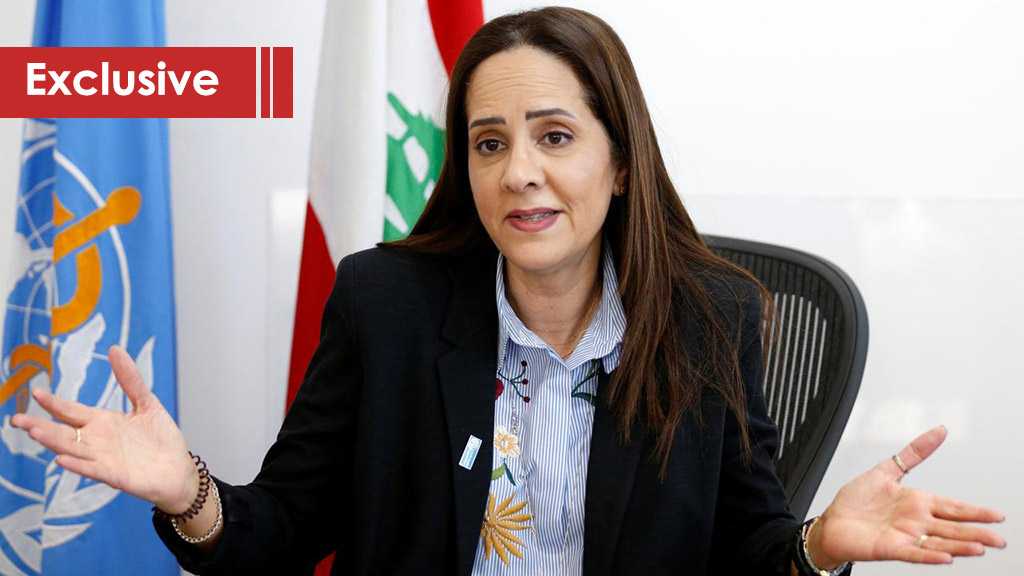
Saturday, 25 April 2020
WHO Representative in Lebanon: Gov’t Measures Progressive, Physical Distancing Necessary Even after Lockdown

Dr. Iman Shankiti, the World Health Organization [WHO] representative in Lebanon, elaborated to al-Ahed, in an exclusive interview, on the country’s current situation regarding the Coronavirus outbreak.
Up until the 23rd of April, Lebanon reported 688 cases and 22 deaths. To date, Lebanon remains in a Level-3 of COVID-19 transmission, experiencing case clusters in specified geographic locations.
“We cannot predict how the events will unfold, however we are working on public health emergency response plans for the different scenarios that Lebanon might face in order to mitigate the possible challenges,” Dr. Shankiti said, adding that the world body will continue its support to the Lebanese Ministry of Public Health [MOPH], “and in the case of an outbreak we will try our best to respond to the health system’s needs in order to cope with any increase in the number of patients.”
Commenting on the response of the Lebanese government and the health ministry, she stressed that the Lebanese Government is taking the necessary measures that will help in containing the spread of the disease.
“UN agencies are working around the clock to support the government on all fronts. Support from the international community is being solicited by UN agencies to enhance the health system’s capacity for a surge in number of cases. The MOPH, with support from WHO, has been taking the necessary measures to enhance the country’s preparedness and response capacity before the first case was detected, and even before WHO declared COVID-19 outbreak as a Public Health Emergency of International Concern,” she explained.
The WHO representative further noted that preparedness and response activities are ongoing as per WHO advice and guidance. Concerned stakeholders are collaborating to coordinate with the MOPH at all time and to respond to requests for advice or support when need arises.
“WHO is supporting the Ministry to ensure good response through numerous activities that include; awareness raising, risk communication, screening at points of entry, detection, testing at RHUH, case management in hospitals, and contact tracing.”
Regarding the lockdown, Dr. Shankiti described the measures taken by the Lebanese government as progressive, adding that one of the main achievements of these measures is the decrease in the number of COVID19 cases registered.
“For the time being we still have COVID-19 cases being detected and the lockdown remains pertinent. The decision to progressively relax the lockdown measures is a government decision and will depend on many factors related to epidemiological data that the MOPH will take into consideration.”
When lockdown measures are stopped, she advised that: “It is important to maintain the physical distancing recommendations. Until now we do not have a specific date in mind to recommend stopping lockdown, the timing will depend on how events will unfold in the coming weeks. WHO is closely monitoring the situation and supporting the MOPH with evidence-based recommendations.”
Back to school?
With respect to the reopening of educational institutions, Dr. Shankiti noted that the WHO regularly attends the inter-ministerial committee meetings that take place at the Prime Minister Office and provides technical advice to the different concerned ministries based on the available evidence.
The decision of reopening educational institutions is a decision to be taken the Lebanese Government based on their assessment of the situation and on the recommendations of the inter-ministerial committee, she stressed, noting that the “WHO advises that even when education institutions will re-open it is critical to abide by the physical distancing recommendations and practices by maintaining at least a meter and a half between a person and another.”
The second wave of COVID-19
Dr. Shankiti concluded that there is a global concern that a second wave might take place since some countries are experiencing another surge in cases after they thought that the virus wasn’t circulating in their population.
Due to the unknown nature of the virus, she said, we cannot be certain that this will happen for sure in Lebanon.
“Our monitoring of the situation, in addition to research currently being conducted by WHO, CDC, scientific, research, and academic institutions will allow us to know more about the virus and its pathogenesis in order to formulate a better idea about possible future scenarios.”
The views expressed in this article are the sole responsibility of the author and do not necessarily reflect those of the Blog!
Subscribe to:
Post Comments (Atom)













No comments:
Post a Comment